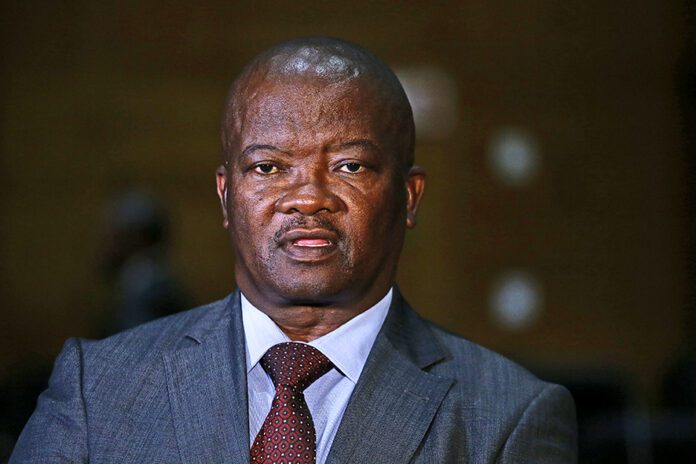UDM leader Bantu Holomisa says it is possible for opposition parties to contest the 2024 National and Provincial Elections under one banner in the form of an alliance registered as a political party with the Electoral Commission.
The proposal is contained in a discussion document of the UDM’s national general council kicking off on Friday at Gallagher Estate, north of Joburg.
The envisioned opposition alliance would have its own memorandum of operation, constitution, name, logo, colours, vision, mission, and core principles.
“We must strive to be as inclusive as possible, and we should champion inclusivity, equality, and transparency,” writes Holomisa in the document circulated to all UDM branches across the country.
He said the responsibility for making this project work could not be placed on one party.
In contrast to the DA’s so-called “moonshot pact”, Holomisa’s proposal opens the door for all parties, including those that garner less than 5% of the vote, which the blue party insists should be excluded.
Also, the moonshot pact has as its primary goal the agenda not only to unseat the governing party but to keep out the EFF, a fellow opposition party that Holomisa is open to accommodating in the alliance coalition.
According to Holomisa, some of the benefits of such an alliance include, but are not limited to, substantially improving competitiveness, and sharing and bundling competencies and resources across provinces.
However, he said “the success of such an alliance depends on the stakeholders’ ability to create a win-win outcome for all the partners in the alliance”.
He believes that formalising the arrangement would guide interaction with the public to avoid confusing the electorate and sending out mixed messages to the public.
“Should there be consensus to form an alliance, interested stakeholders should establish an umbrella body where all partners could contest the 2024 elections under one banner, without them losing their identities.”
Holomisa insists that this formula worked before during apartheid when the ANC brought together many different political formations. This forced the National Party government to the negotiation table.
This coalition, he said, included the middle class and upper middle class, the working class, the poor, students, faith-based organisations, traditional leaders, business sections, and the international community.
“Today the ANC represents only the interests of the African middle class and upper middle class. In adopting the policies of Black Economic Empowerment and Affirmative Action the multiracial coalition created to fight apartheid collapsed,” he said.
For the core of its voters, he said, the ANC now depends on the poor population, especially in rural areas which “it bribes with social grants and other welfare programmes”.
Holomisa said that the time had come for UDM to lead South Africa out of the “confusion and quagmire of corruption”.
“The social and political revolution which released the dynamic energy that had been trapped by the social engineering of the past regimes has created a new socio-political climate in South Africa wherein new political and social alignments can take place.”
Among other hot topics the UDM NGC will grapple with is the task of getting rid of what it terms “plastic, ice cream, or ghost branches” from within its ranks.
“Evidence of this phenomenon has been seen when one collates the data from areas where it was reported that the UDM has ‘so many branches’, yet this promise of support did not culminate in votes. We must all agree that this practice severely weakens the UDM’s organisational capacity.”
To read more political news and views, click here.
Follow @SundayWorldZA on Twitter and @sundayworldza on Instagram, or like our Facebook Page, Sunday World, by clicking here for the latest breaking news in South Africa.



